Students take a walk on the wild side when they develop an understanding of nonfiction texts with hands-on experiences and intense analysis.

Predicting and Gathering Information With Nonfiction Texts
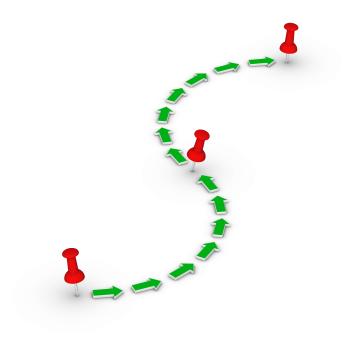
Grades
|
Sequencing: A Strategy to Succeed at Reading Comprehension
3 - 5
Lesson Plan
| Standard Lesson
Did Paul Bunyan gouge out the Grand Canyon before or after he dug the Great Lakes? Students create a life-sized timeline showing the sequence of events in this tall tale.

Grades
|
Writing Workshop: Helping Writers Choose and Focus on a Topic
K - 2
Lesson Plan
| Standard Lesson
Students engage in writing workshop, using a timeline to focus in on and write about a specific event.

Grades
|
Demonstrating Comprehension Through Journal Writing
3 - 5
Lesson Plan
| Recurring Lesson
Students demonstrate comprehension by responding to open-ended questions based on the Newbery Honor book Mr. Popper's Penguins, and then draw from the text and their personal experiences to create journals.
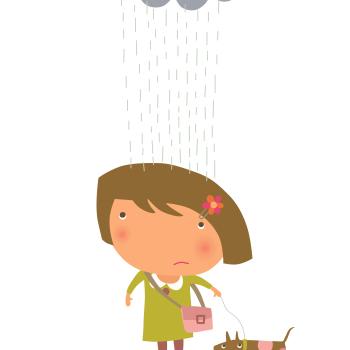
Grades
|
Exploring the Subtext Strategy: Thinking Beyond the Text
2 - 4
Lesson Plan
| Standard Lesson
What is it like to have a terrible, horrible, no good, very bad day? Students find out in this lesson in which they "become" the characters in Judith Viorst's book.

Grades
|
Internalization of Vocabulary Through the Use of a Word Map
6 - 8
Lesson Plan
| Standard Lesson
Students practice with words and develop both definitional and contextual knowledge through two agents—purposeful sequencing of steps and collaboration with peers.

Grades
|
Phonics In Context
K - 2
Lesson Plan
| Minilesson
Use an engaging, authentic text to build students' knowledge of phonic elements and give them a taste of Japanese culture.
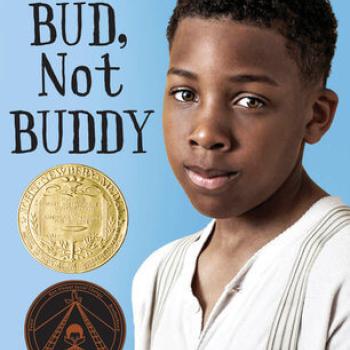
Grades
|
Press Conference for Bud, Not Buddy
6 - 8
Lesson Plan
| Standard Lesson
Students read Bud, Not Buddy by Christopher Paul Curtis, demonstrate comprehension of the story by involving themselves in discussions, and analyze the characters in preparation for a class "press conference."

Grades
|
Learning Vocabulary Down By the Bay
K - 1
Lesson Plan
| Standard Lesson
Students sing a popular children's song, follow along with a picture book that contains the lyrics and illustrations, and then participate in activities to reinforce learning of the vocabulary words.
Grades
|
Choosing, Chatting, and Collecting: Vocabulary Self-Collection Strategy
6 - 8
Lesson Plan
| Recurring Lesson
Students identify interesting words from Shakespeare's plays and add them to a classroom vocabulary collection.

Grades
|
That's Not Fair! Examining Civil Liberties With the U.S. Supreme Court
9 - 12
Lesson Plan
| Unit
Students have the right to have fun in this lesson in which they create a PowerPoint presentation about civil rights and the Supreme Court.
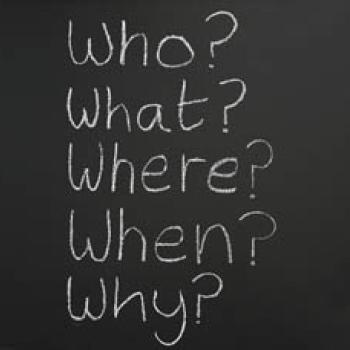
Grades
|
Get the GIST: A Summarizing Strategy for Any Content Area
6 - 8
Lesson Plan
| Recurring Lesson
GIST is a summarizing technique that can be used in any content area. Students will learn and apply the strategy while doing online research and writing activities on news stories.
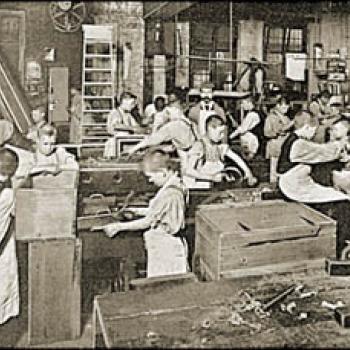
Grades
|
Giving Voice to Child Laborers Through Monologues
6 - 8
Lesson Plan
| Unit
Students present monologues in the "voice" of someone involved in child labor in England, respond to questions, and then discuss contemporary child laborers and compare them to the past.
Grades
|
Developing Inferential Comprehension Through DL-TA and Discussion Webs
3 - 5
Lesson Plan
| Standard Lesson
Students will love unwrapping this lesson about before, during, and after reading activities based on Margaree King Mitchell's book, Grandaddy's Gift.

Grades
|
To, Too, or Two: Developing an Understanding of Homophones
3 - 5
Lesson Plan
| Minilesson
The classroom becomes a stage in this interactive lesson in which students sing, act, and design comic strips to learn the meanings and spellings of common homophones.

Grades
|
Seuss and Silverstein: Posing Questions, Presenting Points
9 - 12
Lesson Plan
| Standard Lesson
Students will enjoy this blast from the past as they read the works of Dr. Seuss and Shel Silverstein to analyze the way social issues are addressed in selected works.
Grades
|
Using Word Webs to Teach Synonyms for Commonly Used Words
4 - 8
Lesson Plan
| Standard Lesson
Students use word webs to choose synonyms for generic adjectives and to learn to adjust their word usage for different contexts.

Grades
|
Sort, Hunt, Write: A Weekly Spelling Program
3 - 5
Lesson Plan
| Recurring Lesson
It's easy to make spelling fun. Using a variety of activities from sorting to using words in context will help deepen students' understanding of word patterns.

Grades
|
Scaling Back to Essentials: Scaffolding Summarization With Fishbone Mapping
6 - 8
Lesson Plan
| Standard Lesson
Students work in pairs and groups as they complete fishbone maps that highlight main ideas and relevant details from a cause-effect text and then write summaries of content area texts.

Grades
|
ABC Bookmaking Builds Vocabulary in the Content Areas
6 - 8
Lesson Plan
| Standard Lesson
V is for vocabulary. A content area unit provides the theme for a specialized ABC book, as students select, research, define, and illustrate a word for each alphabet letter.